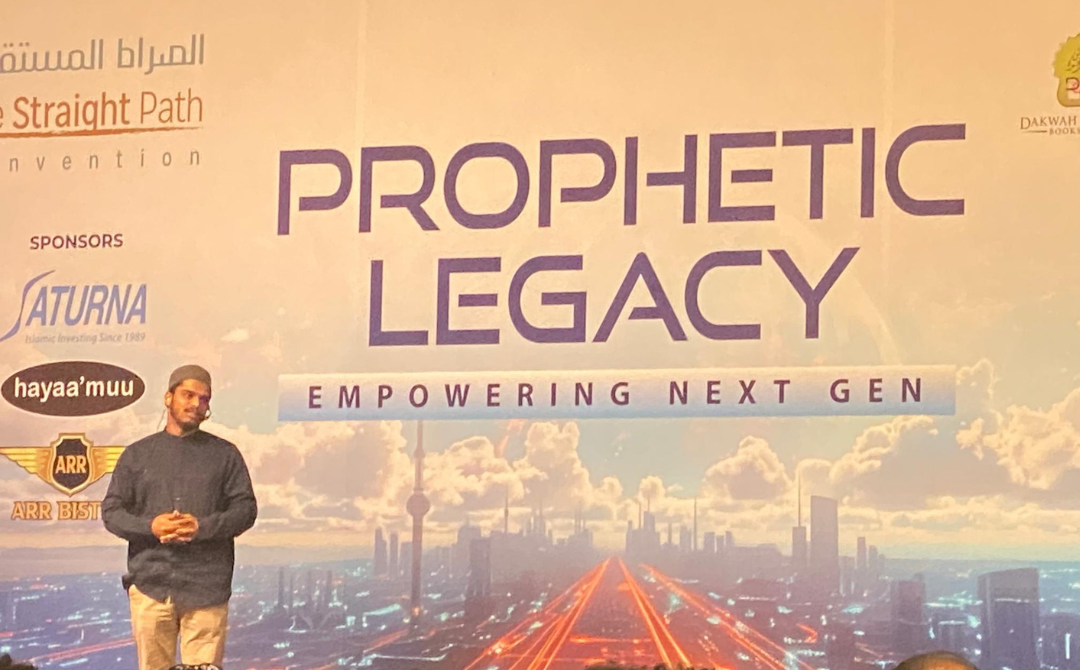Islamic perspective: Protecting children’s innocence in digital age
"We need to create education through mosques, schools and parents at home to instill important values."

KUALA LUMPUR - Children’s innocence is increasingly at risk as they are exposed to violence, inappropriate content, and constant entertainment through screens.
Addressing this concern, United Kingdom (UK) Roots Academy academic director Hisham Abu Yusuf highlighted the importance of fostering meaningful connections, teaching life purpose through the Quran and providing mentorship to help young people navigate this overwhelming environment.
"The sight of a child staring at a screen with glazed eyes has become normal. We’ve fallen into the trap of entertaining our children and ourselves into oblivion.
"We live in the age of entertainment, where it's common for a young adult to come home and turn on the TV or play video games.
"Today, the real crisis is that entertainment has become an opiate and no one wants to face a moment with their own thoughts anymore," he said during The Straight Path (TSP) 2024 convention which took place at Menara Kembar Rakyat, here.
Impact of entertainment culture on youth mental health
During the "Guiding Youth to Virtue: From Teens to Young Adults" session, Hisham said young people, in particular, were struggling with this shift, where entertainment reigned supreme even in spaces where focus and reflection should be prioritised.
"We are in the age of entertainment and anxiety, where many young adults have grown up without experiencing the sunlight or the outdoors, always sheltered.
"Having only known the online world of chats and virtual spaces, these young adults often feel too shy to start conversations in a physical setting. These are the young adults that are growing up," he said.
Hisham warned that the consequences of this entertainment-centric culture were dire.
He said the pervasive use of screens has created a generation of young adults and children who struggled with socialisation, were prone to anxiety and faced increased rates of depression and self-harm.
In fact, he said one in three young adults experienced depression and one in seven contemplated suicide.
He called for a collective acknowledgment of the crisis at hand.
What should be done?
To address this crisis, Hisham advocated for a return to the fundamental principles that guided earlier generations in the Quran and the Sunnah of Prophet Muhammad (SAW).
He highlighted a three-step journey for young people to find their purpose and align themselves with their Creator, realising their purpose, understanding the teachings of the Quran and staying connected to the Sunnah.
"We need to create education through mosques, schools and parents at home to instill important values.
Hisham emphasised that parents must also take a proactive role in nurturing their children’s understanding of their faith.
This can begin with simple bedtime stories drawn from the Quran.
He said sharing these narratives not only strengthens the child’s connection to the stories, but would also help them internalise the lessons they offerred.
"If schools don’t take the lead, parents must step in, some responsibilities cannot be outsourced.
"A simple three-to-five-minute bedtime story can inspire meaningful discussions and anyone can do it," he said.
Creating a strong foundation through education
He also expressed concern over the current approach to Quranic education, where memorisation takes precedence over understanding.
Drawing inspiration from how the Prophet taught the companions, he called for a shift in the way children engage with the Quran which was through learning the meanings of verses before memorising them.
"The Prophet taught the Quran to the young sahabah (companions of the Prophet) in a structured way, 10 verses at a time. He focused on their meanings and lessons before moving on to the next verses.
"For example, Umar ibn al-Khattab took eight years to memorise Surah Al-Baqarah, which was 50 pages," he said.
Hisham said if a child today took eight years to memorise Surah Al-Baqarah, they might face criticism or even punishment for their perceived slowness or failure.
However, he pointed out that the sahabah never approached learning the Quran in this way.
He stressed that young people must be taught to truly understand and connect with the Quran, rather than merely memorising it.
Hisham further highlighted the importance of teaching children the meaning of what they memorise to prevent them from becoming part of a lost generation.
"First, children need to surround themself with a positive environment and good company to nurture personal growth.
"Number two focuses on building a deep attachment to the Quran, not just its recitation or memorisation, but understanding its meanings and lessons, especially in an age filled with distractions, entertainment and doubt.
"The third is recognising the importance of having a mentor to guide and inspire personal and spiritual growth," he said.
The importance of mentorship and positive environment
Hisham urged for positive role models who can speak to young people in a way that resonates with them.
Sending them to youth programmes, mosques and community sports activities can also help create bonds with like-minded individuals.
Additionally, he said parents must be vigilant about the media and content their children consume.
"Just as we control their diet, we must control what they watch, ensuring they are not exposed to harmful or inappropriate content," he added.
Hisham recommended a holistic approach to parenting, one that included not just physical nourishment but also mental and spiritual guidance.
His message was clear, where Muslims must recognise the brokenness of today’s generation and take actionable steps to address it.
This involved fostering a purposeful connection to faith, creating environments of understanding and finding mentors who can provide guidance.
Themed "Prophetic Legacy: Empowering the Next Gen," TSP 2024 aimed to inspire and empower Muslims from diverse backgrounds to focus on shaping the future generation.
The convention emphasised cultivating a sound worldview rooted in authentic Prophetic teachings, offering dynamic and enlightening dialogues and discussions.
Besides Hisham, other speakers were Imam Development Programme, South Africa founder and director Sheikh Bilal Ismail; An-Nadaa Educational Foundation, Nigeria founder Dr Ibrahim Nuhu Tahir; Mufti, judge and National Waqf Fund, UK Syariah adviser Sheikh Dr Sajid Umar and Nafsib Wahida, New York founder Dr Hassan Akbar.
Sapience Institute, UK founder and chief executive officer Hamza Andreas Tzortzis moderated the discussions throughout the sessions.
Download Sinar Daily application.Click Here!















